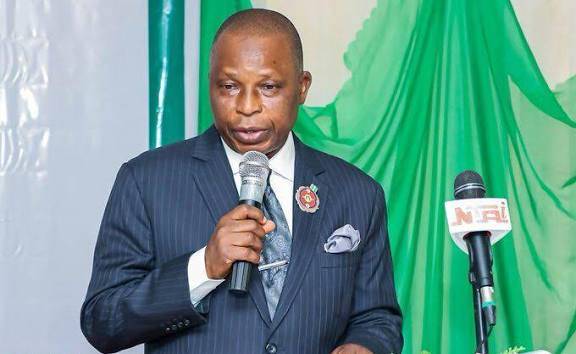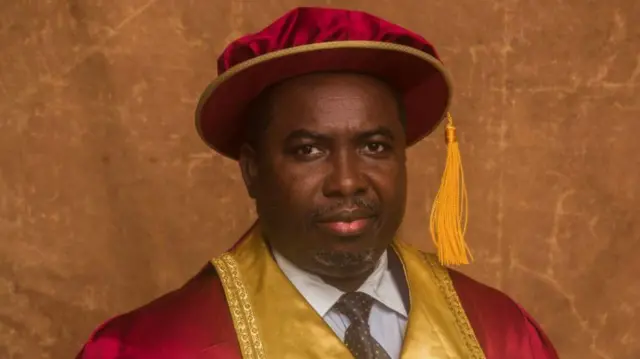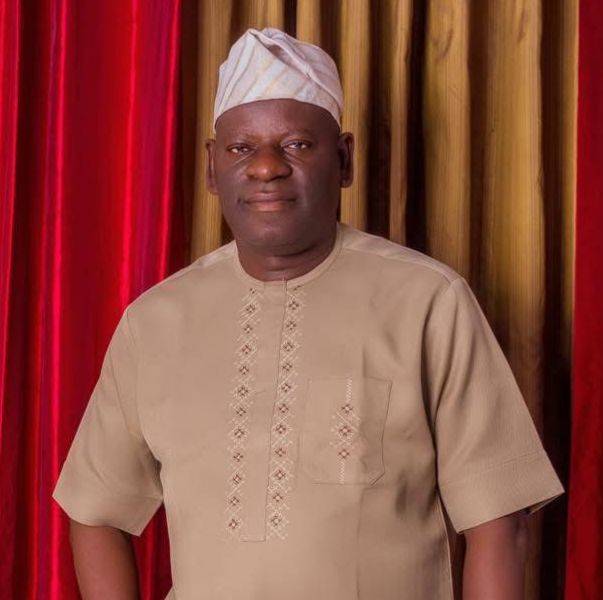The Attorney-General of the Federation (AGF) and Minister of Justice, Lateef Fagbemi, has said that he has launched a probe into a messy property controversy in the United Kingdom involving senior Nigerian lawyer Mike Ozekhome and other Nigerians.
While addressing a group of various representatives of the Nigerian legal profession, including Chief Justice of Nigeria (CJN) Kudirat Kekere-Ekun, at the Supreme Court complex in Abuja, Mr Fagbemi referred to the London case as a development that has had an impact on the legal sector.
“It is for this reason that my office has now taken the unusual step of verifying the authenticity of this and often complaints with a view to referring them to the appropriate disciplinary bodies,” Mr Fagbemi said.
He delivered the remarks at the ceremony marking the beginning of the Supreme Court’s new 2025/2026 legal year and conferment of the prestigious rank of Senior Advocates of Nigeria (SAN) on 57 lawyers.
In the case Mr Fagbemi referenced on Monday, a judge of an English property tribunal, Ewan Paton, delivered a ruling on 11 September blocking an audacious move by Mr Ozekhome, a prominent Nigerian lawyer and SAN, to take ownership of a house in North London.
The judge said the case was built on a network of fraud, impersonation, and forged documents.
He found that Mr Ozekhome’s defence, supported by his son, amounted to a “contrived story… invented in an attempt to provide a plausible reason” for the transfer of the property to Mr Ozekhome in 2021.
While blocking Mr Ozekhome from taking over the property, the judge also struck out Mr Ozekhome’s adversary’s claims, describing them as an abuse of judicial process.
Mr Fagbemi said on Monday that the London case “stands out in recent memory” and “bears sadly” on the integrity of the Nigerian legal profession.
“It bears sadly on the high esteem and integrity that our noble profession commands as a sine qua non for our collective commitment and investment in the legal brand. I am referring to the recent decision (11th September 2025) of an English property tribunal, by Judge Ewan Paton.
“It will be remiss of me not to bring such an egregious development to the attention of my lords, in the hope that it is addressed frontally against the backdrop of the hallowed rules that guard and define the finest traditions by which our nobility should be measured,” he said.
He appealed for “the cooperation of the Nigerian Bar Association and the Body of Senior Advocates” in his efforts at verifying the authenticity of the complaints and referring the erring ones to the necessary disciplinary bodies.
Nigerian judiciary, new SANs asked to uphold integrity
The AGF also urged the Nigerian judiciary to uphold integrity and public trust while calling on newly inaugurated SANs to champion judicial reforms and ethical conduct.
He urged them to uphold ethical standards and professional excellence, stressing that they must “always toe the path of honour and justice” as ambassadors of the legal profession.
He added that their advocacy and legacy should be measured not only by victories but by the depth of thought they bring to the law, the integrity of their practice, and their defence of the judiciary.
The AGF described the judiciary as the bedrock of democracy that sustains the rule of law and is increasingly called upon to adjudicate electoral disputes, constitutional issues and the protection of fundamental rights.
“Yet, this rising responsibility has firmly placed the judiciary in the court of public opinion,” he said.
He admitted that public confidence in the judiciary has been shaken by perceptions of undue influence, inconsistent rulings and delays, while allegations of corruption, though often unproven, cast long shadows.
He stressed that although the judiciary should be accountable more to public interest than opinion, it must discharge this accountability by “being principled, independent and impartial.”
He said it must deliver justice transparently, consistently and with intellectual rigour, adding: “Like Caesar’s wife, the judiciary must be above reproach and suspicion.”
Mr Fagbemi also noted that the strength of the judiciary lies in the clarity, coherence and courage of its judgments, which should serve not only lawyers but also citizens whose lives they affect.
He expressed hope that the Chief Justice of Nigeria would sustain ongoing reforms in the new legal year and urged the National Judicial Council and court heads to prioritise full digitalisation to improve case management.
The AGF stressed that reforms should extend beyond infrastructure and efficiency to include legal culture and philosophy, evolving a system that serves a modern and informed society. And reaffirmed his office’s commitment to working with the judiciary and stakeholders to improve justice delivery in Nigeria.
Credit: Premium Times













